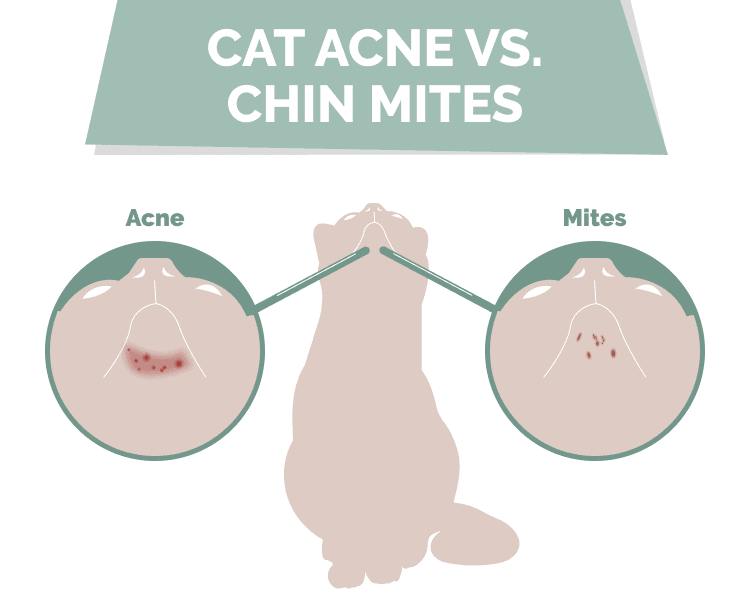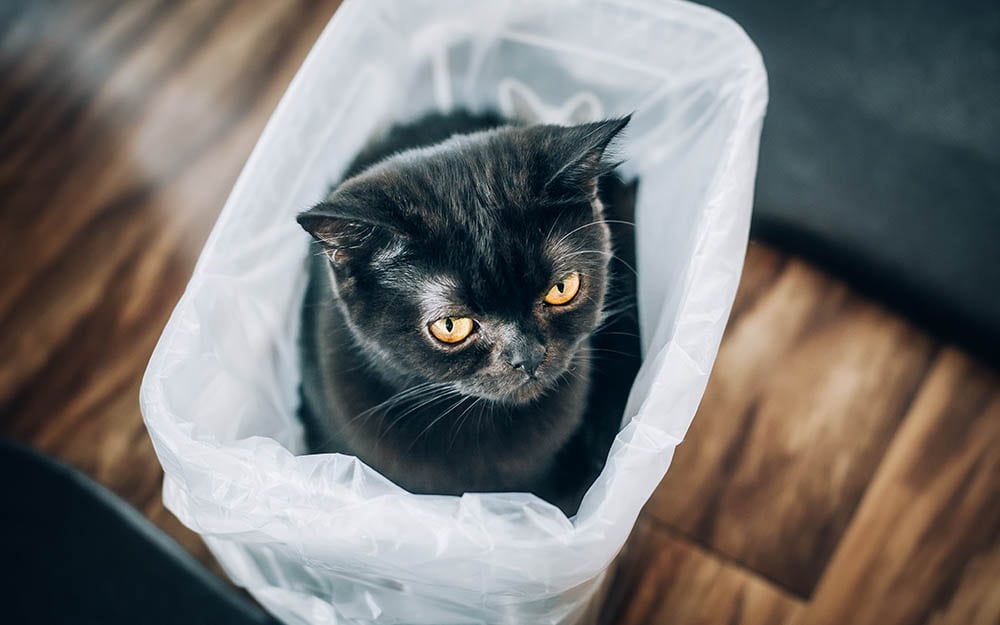Why Does My Cat Purr All The Time? 6 Likely Reasons

Updated on
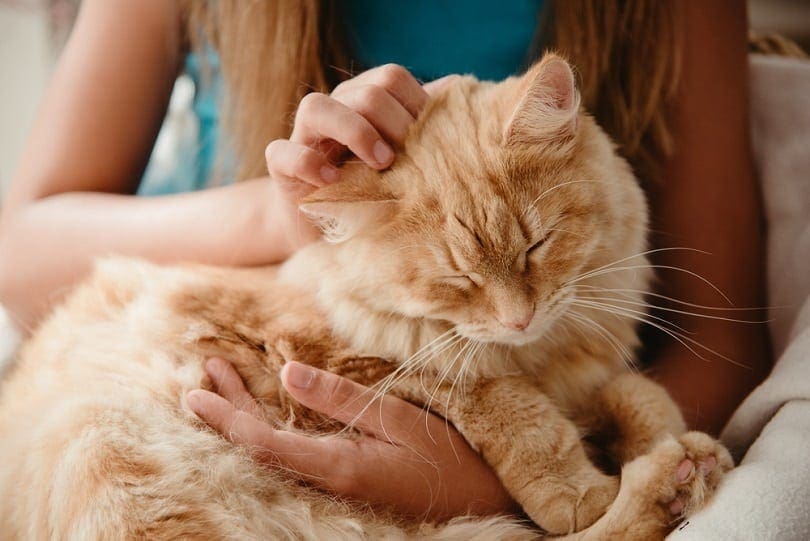
If you are your cat’s favorite buddy and she loves to curl on your lap or sit beside you, you have likely noticed her making a soft, constant buzzing sound. The rhythmic sound is accompanied by noticeable vibrations of the body and may stop or continue even when your furball falls into a deep sleep.
So, why does your cat purr all the time? Does constant purring signify positive emotions, or is your furball sick or stressed?
There are more reasons than one why your cat constantly purrs. Keep reading.
The Top 6 Reasons Your Cat Purrs All The Time
1. To Communicate Contentment
Often, cats purr when they are relaxed and within a setting that makes them feel loved, warm, safe, and comfortable. This remains the key reason your furry friend purrs when curled up between your legs when you brush its fur or pet its body. It is the feline’s way of expressing contentment and happiness.
Cats also purr when eating to communicate that they love their food or drink. Other situations where kitties may purr to show contentment are when nursing or cuddling with a fellow pet.

2. Your Cat Is Stressed or Anxious
Sometimes, purring is not an expression of happiness or contentment. It is common for cats to purr as a coping mechanism for stress or anxiety. Your pet may purr because of separation anxiety or significant changes in their routines or environment.
There are noteworthy differences between a happy and anxious purr. Happy purring is unintentional, and the sound is soft and relaxed. On the other hand, stressed purring is intentional and tends to have a slightly higher pitch. Your feline is also likely to act out, seem withdrawn, feed poorly, or show other signs of discontent.
If you notice purring coupled with other unexplained changes in behavior, your furball is likely stressed or anxious. Address possible causes of stress or visit your vet for personalized guidance.
3. Kitten-Mother Bond
When nursing, kittens purr to inform their mother that they are content. Newborn kittens are blind, and the mother may purr to direct them or to soothe them to sleep. Purring between a mother and her kittens also helps to strengthen their bond.
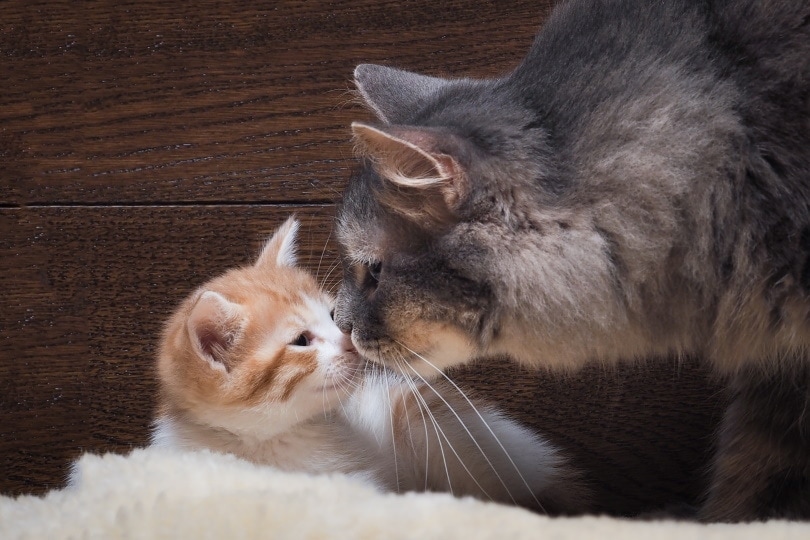
4. Your Cat Is Sick or In Pain
Cats also purr to calm down, repair injured areas and build muscles. The soft vibrations help with pain relief, and a sick cat or one in labor is likely to purr constantly.
Felines heal faster from surgery, illnesses, or bone and muscle injuries because purring stimulates healing. Purring also makes breathing easier, promotes proper blood circulation, and triggers the release of endorphins to help the feline to cope with an illness.
5. To Get Your Attention
If your cat is purring between meowing, it is possibly making a “solicitation purr.” It could be that it is hungry, thirsty, or wants your affection. Some cats will even make a sound pretty similar to a baby crying. Humans naturally respond to this sound.
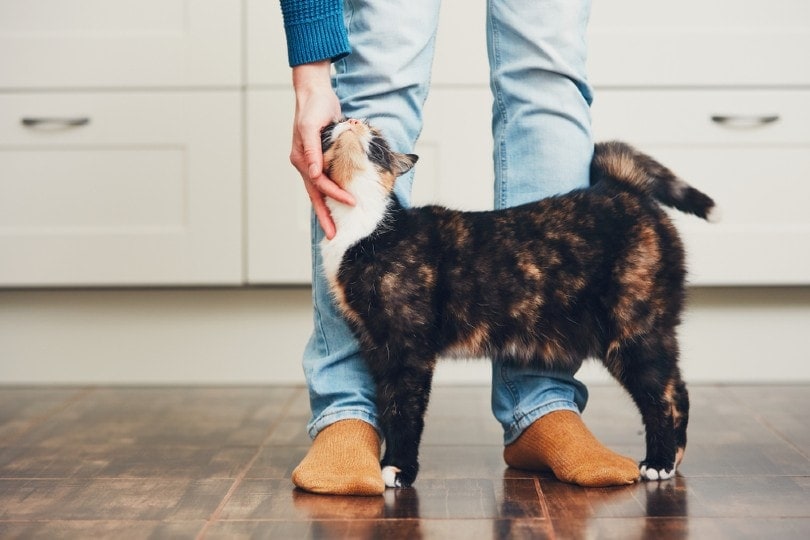
6. Your Cat Is Curious
Cats are naturally curious and enjoy uncovering new mysteries or exploring new environments. They are fierce predators with sharp survival instincts. Their predatory instincts, coupled with a playful personality, can make them purr when they are up to something exciting (or dangerous).
Final Thoughts
So, why does your cat purr all the time?
The exact reasons why cats purr remains a mystery. What is verifiable is that this soft, continuous, vibrating sound is your feline’s way of communicating its feelings.
Featured Image Credit: Karpova, Shutterstock


